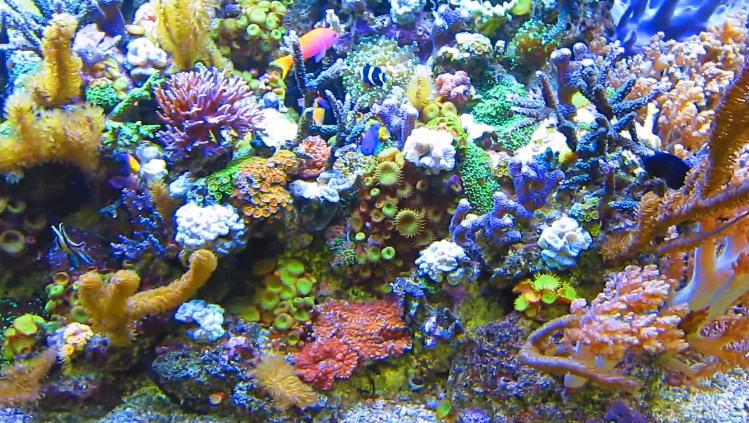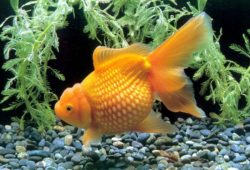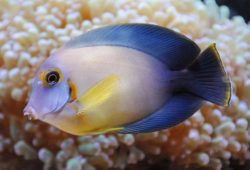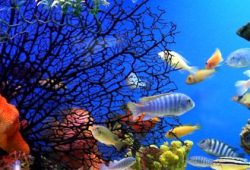Quick Facts for Saltwater Aquarium Animals
In the article I’m going to tell you about Quick Facts for Saltwater Aquarium Animals.

Contents
- 1 Aquarium Suitability Snapshot for Fish, Coral or Other Invertebrate
- 2 Care Level of Aquarium Saltwater Fishes, Corals and Other Invertebrates
- 3 Reef Compatibility of Saltwater Fishes, Corals and Other Invertebrates
- 4 Disposition of Saltwater Fishes, Corals and Other Invertebrates
- 5 Diet of Saltwater Fishes, Corals and Other Invertebrates
- 6 Research All Fishes, Corals and Other Invertebrates Fully
Aquarium Suitability Snapshot for Fish, Coral or Other Invertebrate
When purchasing a new animal for a tropical saltwater aquarium, the aquarist will often be provided with “Quick Facts” providing a snapshot of the animal. Four of the most common quick facts are:
- Care Level
- Reef Compatibility
- Disposition
- Diet
Care Level of Aquarium Saltwater Fishes, Corals and Other Invertebrates
The care level generally indicates the aquarists’ level of experience, and new aquarists will likely have the most success with beginner level fishes and invertebrates. The aquarist who has successfully reached the six month to one year mark should be ready to attempt some intermediate level fishes, although this aquarist may still want to stick with beginner level corals. It often takes half a year for a saltwater aquarium to stabilize to the point where many corals will thrive.
Expert level animals are only appropriate for the dedicated aquarist who is prepared to meet the animal’s husbandry needs. Expert level animals may be difficult to wean onto a captive diet. They may require many feedings per day, specialized feedings or very specific environmental conditions. The aquarist should expect that retailers who offer guarantees on livestock will not offer a guarantee on expert level animals.
Reef Compatibility of Saltwater Fishes, Corals and Other Invertebrates
A reef aquarium is an aquarium housing a combination of fishes, corals and other invertebrates. Not all animals are appropriate for the reef aquarium, even when the animal is a reef-associated animal in the wild. A coral-eating fish in the wild, for example, may graze acres of coral without killing any individual specimen. In the reef tank, a coral-eating fish can easily damage or even kill prized coral specimens in very little time.
There is a great deal of debate about which animals are reef compatible and which are not. Sometimes it comes down to the preference of the individual animal or whether or not the animal was wild-caught or tank-raised. It is generally true, however, that a reef compatible animal will leave corals and other invertebrates alone in a reef aquarium.
Disposition of Saltwater Fishes, Corals and Other Invertebrates
A saltwater aquarium animal’s disposition refers to its aggressiveness. Aggressiveness in the aquarium is different than aggressiveness on the reef. Unlike an aquarium, the ocean is vast, and aggression is lessened by the ability of a more peaceful fish to swim away from a more aggressive fish.
As a general rule, the beginning aquarist should not mix aggressive species with peaceful species. If peaceful and more aggressive species are to be mixed, the more aggressive animal or animals should be added later in the stocking order.
Corals and other invertebrates also display varying levels of aggressiveness that need to be taken into account when stocking a saltwater aquarium. An aggressive coral can easily dominate an area of the aquarium (or the whole aquarium) and kill adjacent corals and other sessile invertebrates.
Diet of Saltwater Fishes, Corals and Other Invertebrates
Most marine fishes are opportunistic omnivores, meaning they will eat what they can when they can. Nonetheless, many fishes and invertebrates lean toward either being an herbivore or a carnivore. When considering a new animal, the aquarist should be prepared to meet the animal’s dietary needs by offering a commercially prepared food or homemade foods appropriate to the animal’s tendency toward being an herbivore or a carnivore. A full, varied diet is often the most critical factor.
Research All Fishes, Corals and Other Invertebrates Fully
Quick facts, while useful, are no substitute for species specific research. Any new animal should be fully researched by the aquarist before he or she adds it to the home aquarium.



